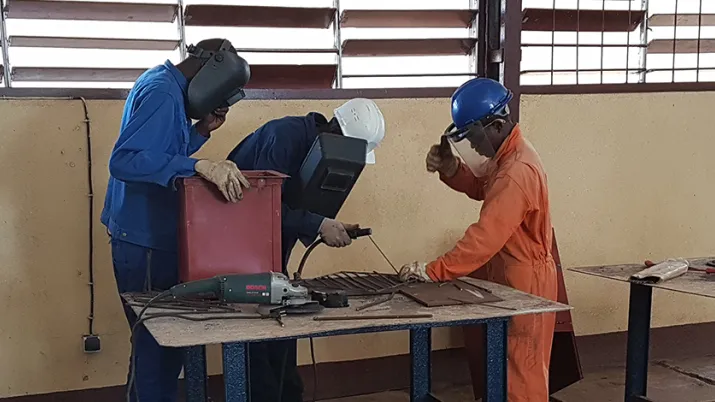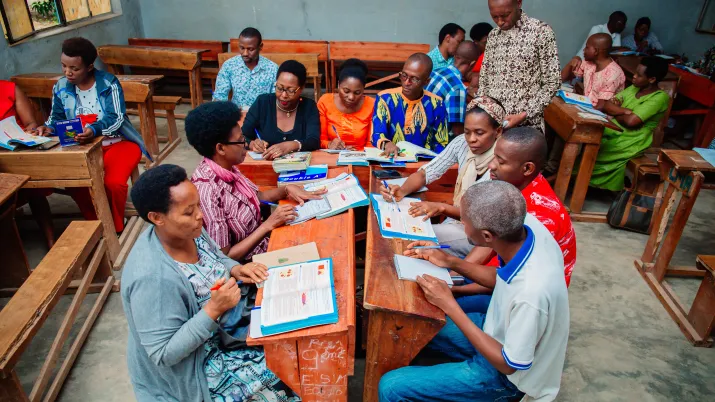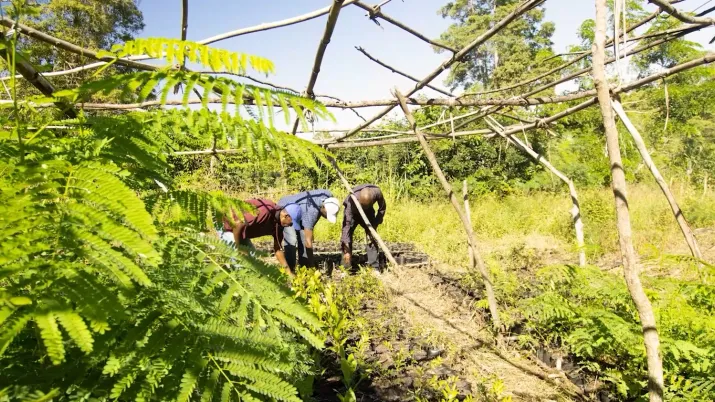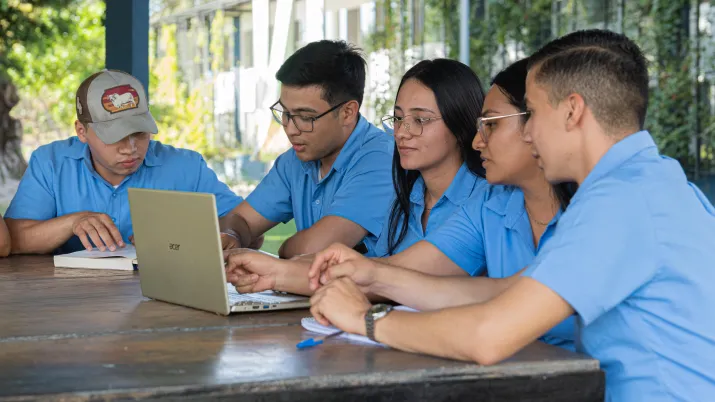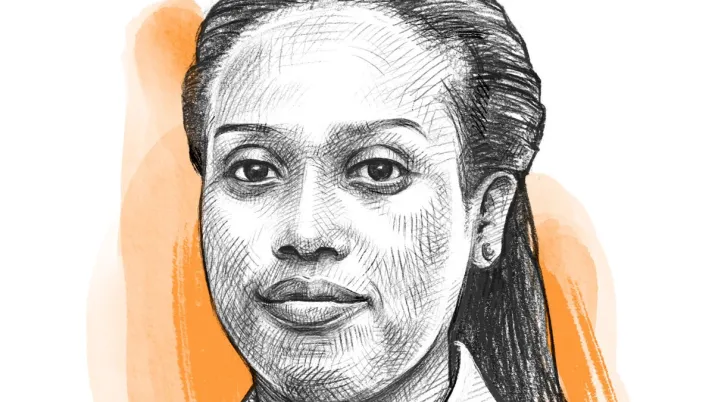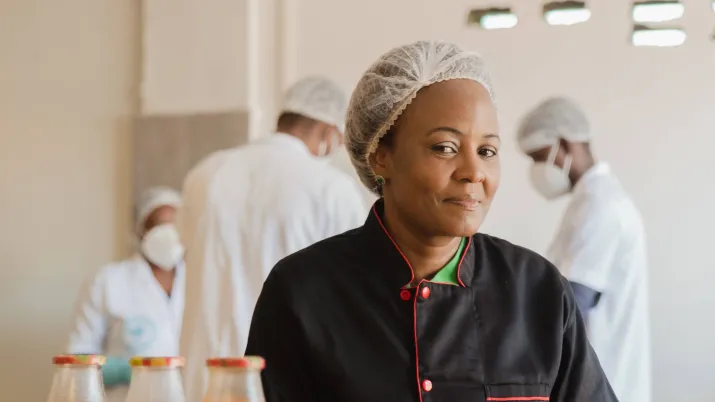Share the page
International human development
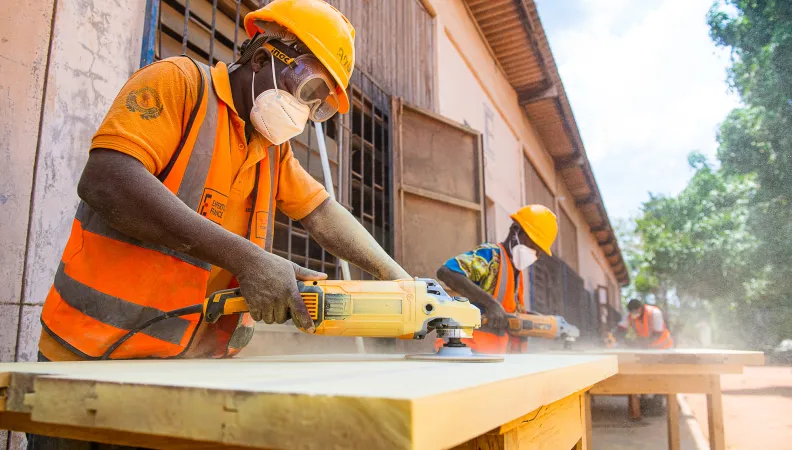
Investing in human capital – through education, training and social protection – is essential to durably address poverty and rising global inequalities.
It is also a key driver for enabling the necessary transitions for sustainable development, especially where climate change and digital technology are concerned:
- 70% of 10-year-olds in low- and middle-income countries cannot read a simple text compared to 57% in 2019, before the COVID-19 pandemic.
- Over 20% of young people aged 15 to 24 in low- and middle-income countries are not employed, in school or in training. This is a reflection of massive youth unemployment in urban areas and widespread underemployment in rural regions.
- Only 20% of people aged 25 to 29 in low-income countries secure safe, paid employment (defined as jobs with contracts lasting over one year). This highlights the challenges facing social protection and decent work, which have been degraded by COVID-19 and climate change.
As France’s development cooperation agency, we support our partner countries in developing quality education and training systems that facilitate employment and social inclusion.
In this context, we carry out projects that create the conditions for socially equitable and economically sustainable development. We help set up social protection systems and strengthen national education, employment and social inclusion policies. Our goal is to support individuals to achieve and maintain autonomy throughout their lives – from early childhood to old age.
Our strategic priorities
Through our work in international human development, we focus on three key areas, namely education, higher education, and research; training and access to employment; and last but not least, social protection and decent work.
1. Education, higher education and research
Education is both a fundamental human right and a strategic priority for the economy. It determines national productivity and a society’s ability to mitigate and adapt to climate change. Our education projects address critical issues ranging from strengthening public policies and governance to improving teacher training and continuing professional development, as well as fostering regional cooperation in basic education.
We particularly focus on ensuring universal access to foundational knowledge and skills, empowering girls and women through inclusive education systems, and supporting the development of higher education.
2. Training and employment
Training and employment are essential to build fair societies. They are crucial pillars of social justice and sustainable development, and are deeply linked to the realisation of human rights. We implement national and regional projects that promote quality education and lifelong learning.
Our work focuses on the following key aspects: support the development and management of public policies for training, employment and social inclusion; strengthen stakeholder dialogue and coordination; improve the quality of training provided by technical and vocational education and training (TVET) centres; enhance public services in employment, youth, and social inclusion; and support entrepreneurship and capacity-building initiatives.
3. Social protection and decent work
Our agency implements technical cooperation projects that strengthen social protection policies in our partner countries and promote decent work for all. These projects have knock-on repercussions for people’s entire lives, from early childhood to old age.
Our approach focuses on four key areas: develop social assistance and inclusion mechanisms for vulnerable populations; strengthen social services; develop and reinforce social security and welfare mechanisms; and pre-fund healthcare services.
Ressources à télécharger
For more about social protection
FAQs
For more about international human development
Human development complements economic development. It is based on the idea that individual well-being cannot be reduced to economic well-being alone. It is promoted by the United Nations Development Programme (UNDP), and evaluates the core capabilities that allow people to live in dignity with access to health, knowledge, employment, and public participation – aligned with the 1948 Universal Declaration of Human Rights.
At Expertise France, we put this into action by delivering projects in education, training, access to employment, social protection and work.
According to UNICEF, sustainable human development “complements sustainable development by enhancing the capacities of successive generations in terms of economic growth, living conditions, social capital and human capital.” It seeks to meet current needs while preserving resources and capacities for future generations.
Expertise France supports its partner countries in developing quality education and training systems that facilitate successful social inclusion and access to employment.
International development cooperation strengthens national capacities to design and implement effective, inclusive public policies. As a key stakeholder in this domain, Expertise France contributes by implement technical cooperation projects to:
- Transfer know-how (technical assistance, training, networking)
- Strengthen systems of education, health, social protection and access to employment
- Support institutional and governance reforms
Our projects in education, vocational training, and universal health coverage illustrate our integrated, long-term approach to international human development.
Our projects
PEERS - Africa-Europe Partnership to Exchange on Education Reforms
Ongoing
2025 - 2030
Funders : European Union
PMSAN 2: Multisectoral Food and Nutritional Security Programme II
Ongoing
2024 - 2028
Funders : European Union, Agence Française de Développement
Our news in human development
key figures in 2024
- 393 facilities received support in delivering basic education services
- 340K students received support from Expertise France in the field of education
- 2,435 staff were trained in vocational training and/or employment
- 1,652 staff were trained in the provision of social protection services

